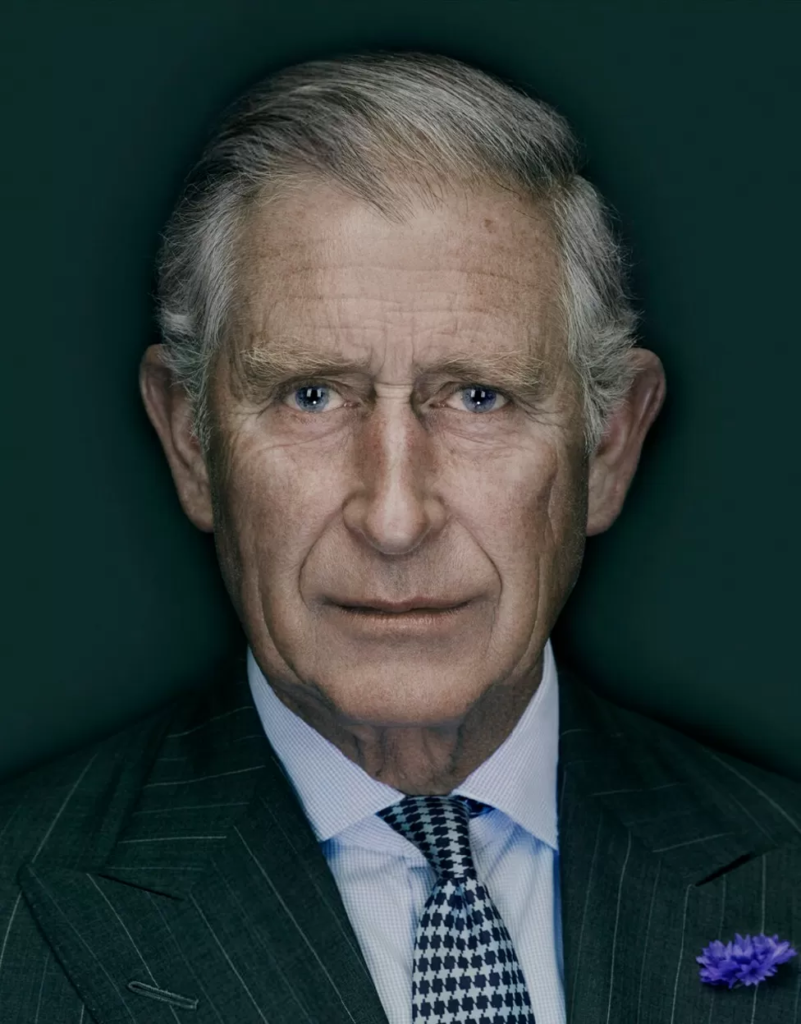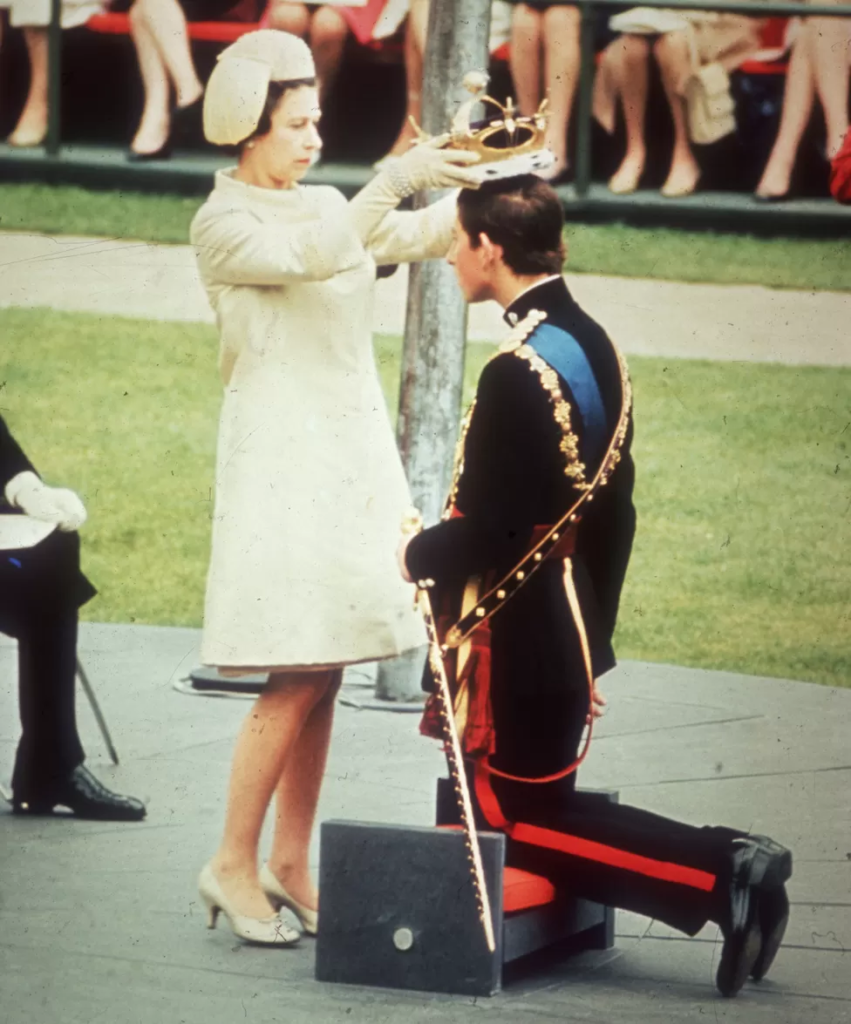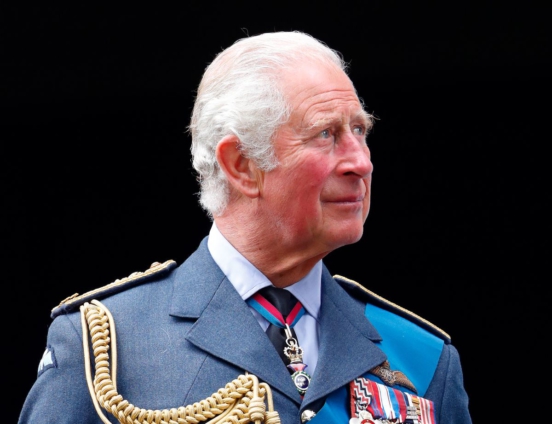At the moment the Queen died, the throne passed immediately and without ceremony to the heir, Charles, the former Prince of Wales.
But there are a number of practical - and traditional - steps which he must go through to be crowned King.

What will he be called?
One of his first acts is to decide whether to reign as King Charles III, or take another name.
For instance, his grandfather George VI's first name was Albert, but he reigned using one of his middle names. Charles could choose from any of his four names - Charles Philip Arthur George.
He is not the only one who faces a change of title.
Although he is heir to the throne, Prince William will not automatically become Prince of Wales. However, he immediately inherits his father's other title, Duke of Cornwall. His wife Catherine will be known as the Duchess of Cornwall.
There will also be a new title for Charles' wife, whose full title will be Queen Consort - consort is the term used for the spouse of the monarch.
Formal ceremonies
In the first 24 hours or so after his mother's death, Charles will be officially proclaimed King. This happens at St James's Palace in London, in front of a ceremonial body known as the Accession Council.
This is made up of members of the Privy Council - a group of senior MPs, past and present, and peers - as well as some senior civil servants, Commonwealth high commissioners, and the Lord Mayor of London.

More than 700 people are entitled in theory to attend, but given the short notice, the actual number is likely to be far fewer. At the last Accession Council in 1952, about 200 attended.
The King does not traditionally attend.
At the meeting, the death of Queen Elizabeth will be announced by the Lord President of the Privy Council (currently Penny Mordaunt MP), and a proclamation will be read aloud.
The wording of the proclamation can change, but it has traditionally been a series of prayers and pledges, commending the previous monarch and pledging support for the new one.
This proclamation is then signed by a number of senior figures including the prime minister, the Archbishop of Canterbury, and the Lord Chancellor.
As with all these ceremonies, there will be attention paid to what might have been altered, added or updated, as a sign of a new era.
The King's first declaration
The Accession Council meets again - usually a day later - and this time, the King will attend, along with the Privy Council.
There is no "swearing in" at the start of a British monarch's reign, in the style of some other heads of state, such as the President of the US. But there is a declaration made by the new King and - in line with a tradition dating from the early 18th Century - he will make an oath to preserve the Church of Scotland.
After a fanfare of trumpeters, a public proclamation will be made declaring Charles as the new King. This will be made from a balcony above Friary Court in St James's Palace, by an official known as the Garter King of Arms.

He will call: "God save the King", and for the first time since 1952, when the national anthem is played the words will be "God Save the King".
Gun salutes will be fired in Hyde Park, the Tower of London and from naval ships, and the proclamation announcing Charles as the King will be read in in Edinburgh, Cardiff and Belfast.
The coronation
The symbolic high point of the accession will be the coronation, when Charles is formally crowned. Because of the preparation needed, the coronation is not likely to happen very soon after Charles's accession - Queen Elizabeth succeeded to the throne in February 1952, but was not crowned until June 1953.
For the past 900 years the coronation has been held in Westminster Abbey - William the Conqueror was the first monarch to be crowned there, and Charles will be the 40th.
It is an Anglican religious service, carried out by the Archbishop of Canterbury. At the climax of the ceremony, he will place St Edward's Crown on Charles's head - a solid gold crown, dating from 1661.
This is the centrepiece of the Crown Jewels at the Tower of London, and is only worn by the monarch at the moment of coronation itself (not least because it weighs a hefty 2.23kg).
Unlike royal weddings, the coronation is a state occasion - the government pays for it, and ultimately decides the guest list.

There will be music, readings and the ritual of anointing the new monarch, using oils of orange, roses, cinnamon, musk and ambergris.
The new King will take the coronation oath in front of the watching world. During this elaborate ceremony he will receive the orb and sceptre as symbols of his new role and the Archbishop of Canterbury will place the solid gold crown on his head.
Head of the Commonwealth
Charles has become head of the Commonwealth, an association of 56 independent countries and 2.4 billion people. For 14 of these countries, as well as the UK, the King is head of state.
These countries, known as the Commonwealth realms, are: Australia, Antigua and Barbuda, the Bahamas, Belize, Canada, Grenada, Jamaica, Papua New Guinea, St Christopher and Nevis, St Lucia, St Vincent and the Grenadines, New Zealand, Solomon Islands, Tuvalu.

Latest Stories
-
GFA President Okraku pays tribute to Kwesi Nyantakyi after new CAF role
8 minutes -
New IGP Yohuno must address ‘unfair’ promotions under Dampare – COP Alex Mensah (Rtd)
19 minutes -
I’m for the change, but I’m not happy about the open jubilation – COP (Rtd) Mensah on Dampare
28 minutes -
Video: Cash sprayed as elated crowd welcomes IGP Yohonu to police headquarters
37 minutes -
Government alone cannot finance tertiary education – GTEC D-G
38 minutes -
A holistic approach to national problems must go beyond Dampare – Barker-Vormawor
49 minutes -
My ministry doesn’t need GH₵78m; allocation is for state agencies – Kwakye Ofosu
52 minutes -
Addressing Greenwashing in Ghana’s Green Transition: Enhancing public awareness and consumer protection against false eco-claims
56 minutes -
Dampare expresses gratitude following exit as IGP
1 hour -
Letter to the new IGP: Bullion van robberies; unanswered questions and the need for justice
2 hours -
2025 GSTEP Challenge: 15 finalists in G/A inducted to prepare for the final pitch and award ceremony
2 hours -
Did Bawumia join a debate on any of Akufo-Addo’s budgets? – Adongo berates minority
2 hours -
MPs eulogise former MP and Regional Minister Anthony Evans Amoah
2 hours -
Lands Minister calls for innovation and sustainability in surveying
2 hours -
Mahama calls for reset of specified entities to drive national transformation
2 hours

